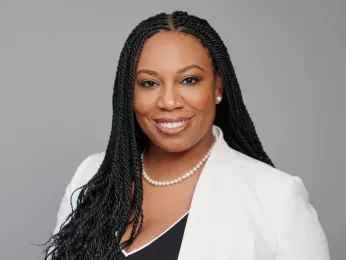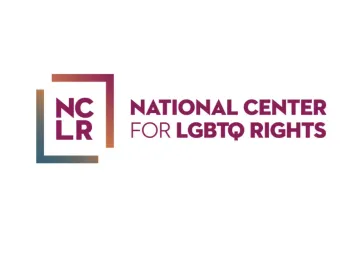
Jun 9
SF-based LGBTQ legal organization changes name
Cynthia Laird READ TIME: 2 MIN.
The National Center for Lesbian Rights, which has long served the broader queer community, is changing its name to reflect that. Beginning Monday, June 9, the San Francisco-based nonprofit will be known as the National Center for LGBTQ Rights.
NCLR, which will keep its well-known acronym, has been discussing the name change for over a decade, a news release noted. The agency was founded in 1977 by attorney Donna Hitchens, who went on to become the first openly lesbian judge elected to the bench in the U.S. when she served on the San Francisco Superior Court, and lesbian attorney Roberta Achtenberg, who became the first LGBTQ person appointed to a position requiring U.S. Senate confirmation when she took a post in the Clinton administration.
Imani Rupert-Gordon, a queer Black woman who has led the agency for five years, said in a June 6 phone interview with the Bay Area Reporter that the name change was overdue.
“We didn’t really have a choice,” she said. “This isn’t going to change the work we do. This will make it crystal clear to everyone.”
Shannon Minter, a trans man, is vice president of legal at NCLR, where he has worked for decades. He told the B.A.R. that he is excited about the name change.
“I’ve been wanting us to do this for a while,” he said in a phone interview, “to make it clear that we represent the whole community.”
NCLR’s original name reflected that it was founded by lesbians and specialized in legal advocacy for lesbians, particularly around family law cases. Over the years, however, NCLR helped establish new areas of civil rights law that would benefit the entire LGBTQ community, the release noted.
Rupert-Gordon reiterated that in the interview. The agency has long worked with gay men, those living with HIV/AIDS, immigrants, and transgender people. In fact, the Transgender Law Center, now its own nonprofit based in Oakland, was born out of NCLR years ago.
Hitchens and Achtenberg’s initial goal was to provide legal support to lesbian mothers fearful of losing custody of their children after coming out. That quickly expanded to advocating on behalf of gay parents living with HIV, transgender parents, asylum seekers, and young people seeking justice in schools and on the playing fields, according to the release.
“NCLR’s feminist roots have always called on us to support and amplify the most underrepresented communities and those often left out of the mainstream movements,” stated Rupert-Gordon. “At a time when the LGBTQ community is facing increasing attacks, it is critical that we are crystal clear that we represent the entire community.
“Without losing touch with our roots, NCLR will continue its nearly 50-year commitment to protecting the most vulnerable members of our community, forging new partnerships, and working toward a day when every LGBTQ person can live with full dignity, equality, and freedom under the law,” she added.

Other groups have broadened their names
In the interview, Rupert-Gordon was asked what took so long. A number of nonprofits serving the LGBTQ community have changed their names, including, in 2018, the LGBTQ+ Victory Fund, formerly the Gay and Lesbian Victory Fund. In 2016, Gay and Lesbian Advocates and Defenders changed its name to GLBTQ Legal Advocates and Defenders, or GLAD Law, because of its expanded mission to advocate for all individuals, regardless of their sexual orientation or gender identity.
“GLAD is a great example,” Rupert-Gordon said, referring to the Boston-based LGBTQ legal organization.
Rupert-Gordon said that NCLR has thought about a name change for many years.
“It takes a bit of thought,” Rupert Gordon said, adding, “change can be difficult.”
But she said that NCLR’s board of directors was completely on board with the name change, as are Hitchens and Achtenberg. The organization has an annual budget of between $10 and $12 million, Rupert-Gordon said.
Minter said that NCLR had been “gearing up” to move forward with the name change in the past, but things happened, including lesbian longtime executive director Kate Kendell departing in late 2018 and the COVID pandemic in the spring of 2020, about a year after Rupert-Gordon took the helm.
“It took us awhile to get to the right moment,” he said.
Hitchens could not be reached for comment. Achtenberg did not return a message seeking comment.
“Donna and Roberta are very supportive,” Rupert-Gordon said, “and supportive of my leadership.”
Rupert-Gordon was hired in late 2019. Kendell recently accepted a job as CEO of the Denver-based Gill Foundation, an LGBTQ philanthropic organization. In a Facebook message to the B.A.R., Kendell said she’s supportive of NCLR’s name change.
“I think it’s a great move and one I fully support,” Kendell wrote. “Even as NCLR will always center lesbian leadership, this name reflects the fact that we have always represented the breadth of our community.”
Rupert-Gordon said she was on an NCLR retreat before she started formally working at the agency and the topic was discussed. Her sister, Maya Rupert, a straight ally, once worked at NCLR as the policy director and the subject was brought up then, Rupert-Gordon said.
In the release, Minter noted that NCLR has long taken cases that hinge on all LGBTQ people.
“This change reflects what has always been true: NCLR works tirelessly to defend, protect, and advance the entire LGBTQ community,” Minter stated.
Minter also noted how times have changed for the LGBTQ community now that Republican President Donald Trump has returned for a second term. Trump’s executive orders since January have singled out the trans community, including banning trans troops from serving openly in the military and barring trans women and girls from playing on female sports teams. NCLR was the first LGBTQ legal organization to file suit after Trump issued his trans military ban.
“Since this administration took office, NCLR has filed four lawsuits challenging discriminatory and unconstitutional executive orders, and we are preparing for additional litigation,” he stated. “I have devoted my more than 30-year legal career to working at NCLR, an organization committed to putting the community first, supporting LGBTQ people and their families, and using the power of the courts to fight for a better and more just world.
“I am excited that our new name captures and expands that spirit and vision,” Minter added.
In the interview, Minter said now is the right time for the change.
“The situation for LGBTQ people is so dire right now,” he noted. “It is the right time.”
To see NCLR’s new brand, go to nclrights.org.







